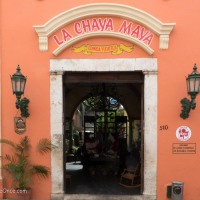On my first trip to France fifteen years ago I learned something important about myself. After returning recently for a seven-week visit, I became more certain than ever. I was French in a former life.
Every time I come to France I’m struck by how completely at home I feel. And it’s not just the thousands of châteaux that dot France’s lush landscapes or its seemingly endless supply of picture-perfect towns that I adore. It’s the culture that calls to me. It’s the way people live their lives and the way they set their priorities that just seems right to me.
How so, you ask? Well, let’s set the table, as they say (because what could be more French than that) with a few pertinent facts.
- A 2003 global study by the Durex Corporation found that French people have the most frequent sex.
- France has won the most Nobel prizes for literature.
- About 85% of the French population lives in urban areas.
- There are more than 300 distinct kinds of French cheese and hundreds, if not thousands, of different French aperitifs, many of which are distilled at home.
- The French are the world’s second largest consumers of alcohol.
- French workers retire younger than in other OECD countries.
- And the French word for “deadline” is délai (pronounced “delay”) because who has time for work when there’s all that eating and drinking and screwing that needs getting done?
If I were to dream up a utopian society it would look a lot like France; beautifully urban with a great appreciation for art, food and, well, that other thing.
It is the French appreciation for food that seems most pervasive, though. Nearly everywhere we went we were greeted by the aromas of something amazing simmering slowly on a stove. And every time we had a bite to eat, even if it was a simple jambon-beurre sandwich on the side of the road, someone – often multiple someones – would inevitably wish us Bon Appetit.
It is said so frequently that it almost seems reflexive, like the way Americans ask “how are you?” as a form of greeting. We don’t really care how you are and we most assuredly don’t want to know. “Fine, thanks” is the expected and really the only polite response regardless of whether it happens to be true.
All the same, the mere existence of the phrase Bon Appetit says something meaningful about French culture. Even after hearing it dozens of times I didn’t glean its significance until after our French host asked us, over dinner of course, how we say Bon Appetit in America. She couldn’t believe we don’t have a similar expression.
Now it is true that we’ve borrowed Bon Appetit from the French, but we use it differently when we bother to use it at all. To us, Bon Appetit is like good china, something to utilize on special occasions. We’ll unfurl the expression as an exclamation point for an especially elaborate meal, often accompanying the phrase with a sweep of an arm over a well laid table. Said that way, Bon Appetit becomes more a boastful comment about what’s being served than the toast to the simple joy of savoring food that is intended when said by the French.
It’s telling that English speakers never felt it necessary to invent their own word or phrase to salute a meal (saying “enjoy your meal” isn’t really the same thing as having a unique expression, even if we said it, which we mostly don’t). We’ll sometimes toast our drinks by raising a pint and bellowing a hearty “Cheers!” but what about the food on our tables? Where’s the celebration of one of the most celebratory things we humans do?
If you think, like I do, that our vocabulary evolved to express the things we value, the omission of words is as important as their inclusion. And the absence of Bon Appetit from our language isn’t just about our approach to food; it’s symptomatic of a different approach to life. We eat fast. We eat on the go. And in the process we’ve reduced one of life’s greatest pleasures to the equivalent of a shower and a shave – just one more chore on our daily to-do list. We’ve done that all to make time for other, presumably more important, objectives.
Along the way we’ve lost something the French still seem to hold dear. It’s that thing that calls to me so strongly when I’m here. More than their châteaux or even their cuisine, what makes me feel so at home in France is their – how do you say it in English? Ah, yes, it’s their joie de vivre.























“…our vocabulary evolved to express the things we value” . Yes, automatically, and not only vocabulary : the whole structure of each language too . And the fast disparition of everything related to grammar in English is telling a lot to me . But well, Bon appétit !
LikeLike
We recently read an article by a foreigner living in Paris who’s French wife said it was very un classy to say bon appetit! You can’t win 😉
LikeLike
Unclassy ? Well, maybe in some jet set or aristocratic circles I never meet … With EVERY tribe of French people I dealt with, a ” Bon appétit” never triggered anything but a pleasant “merci”, and a sometimes surprising instinctive reflex of a politeness rooted from the childhood even from some beyond-borderlines folks .
LikeLike
I studied abroad in Paris and my host mom – my “madame” – always, always, always said “bon appetit” before a meal.
LikeLike
Reblogged this on digger666.
LikeLike
Leisurely savoring a cup of cafe au lait in an outdoor shop is part of the life style. I don’t know about you, but I don’t have the time to spend sitting, relaxing and people watching while sipping.
LikeLike
We admit, we love our giant to-go coffee cups. It’s the one thing I think we really missed while in Spain and France.
And we’re still American enough to want to multitask during some of our meals. We don’t always want to sit down for a long coffee or a marathon lunch. We’ve often got other things we want to get to. But whether we have enough time or not seems more like a choice than a binding constraint. The French seem to have enough time to do these things. They’re working with the same 24 hours we all have. They just prioritize those hours differently. I generally like their priorities better. 🙂
LikeLike
Hey, when you’re busy, 5 minutes it’s enough ! We need a break, a breath, one coffee- one fag and let’s go again . If a life ( out of Spartacus and Bengali children’s situation ) doesn’t allow you to have one 5 mn stop, well …why the heck having chosen that society !?
LikeLike
The single greatest dining experience of my life was an eight course, leisurely paced, three-hour dinner at a French Restaurant (VERY FRENCH) in California. Can’t wait to experience what you are doing now. You are right. They GET it!
LikeLike
I wish Americans savored dining as much as other cultures. I know I do. I adore food and I especially enjoy a glass of wine while preparing it and then savoring each bite. We, Americans have a lot to learn. I have come to the conclusion I should be living somewhere else other than the US. My lifestyle is very differnt than the typical American. Great insight, thanks for sharing!
LikeLike
We certainly think our approach to life / work balance issues fit more of a European mold than an American one. At the very least we know we’re delighted not to be caught up in pursuing the traditional “American Dream.” That’s just not for us.
LikeLike
There´s a similar expression in Spain said before meals. Waiters say it after delivering food to the table and even complete strangers have passed me while I´m eating alone and say “Que aproveche.” It literally means “that you make the most” of your meal, or that it nourishes your body and that you enjoy your meal. We don´t have anything close to that simple phrase at home and I really like the sentiment behind it.
LikeLike
Pressed onto my blog. ❤ it!
LikeLike